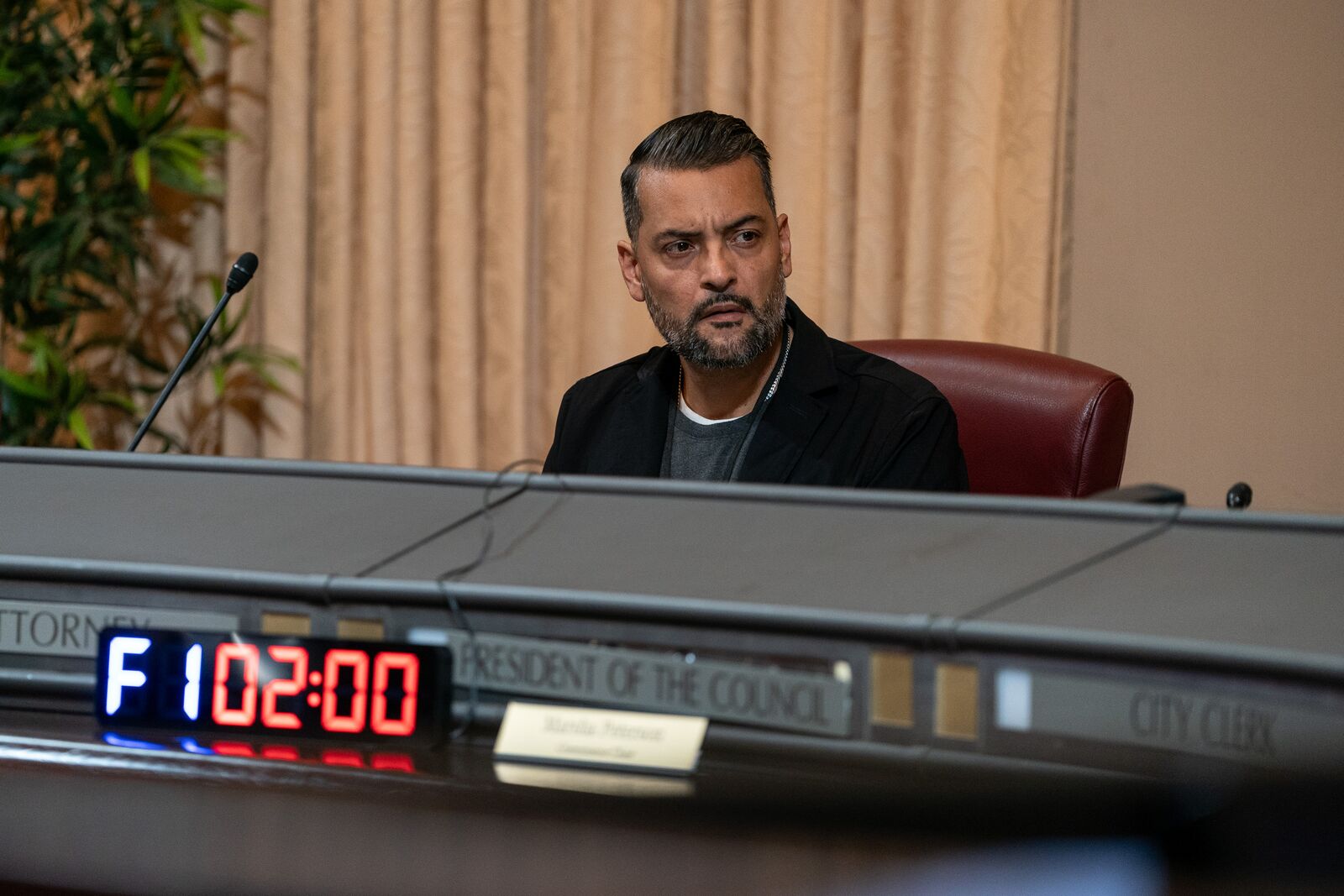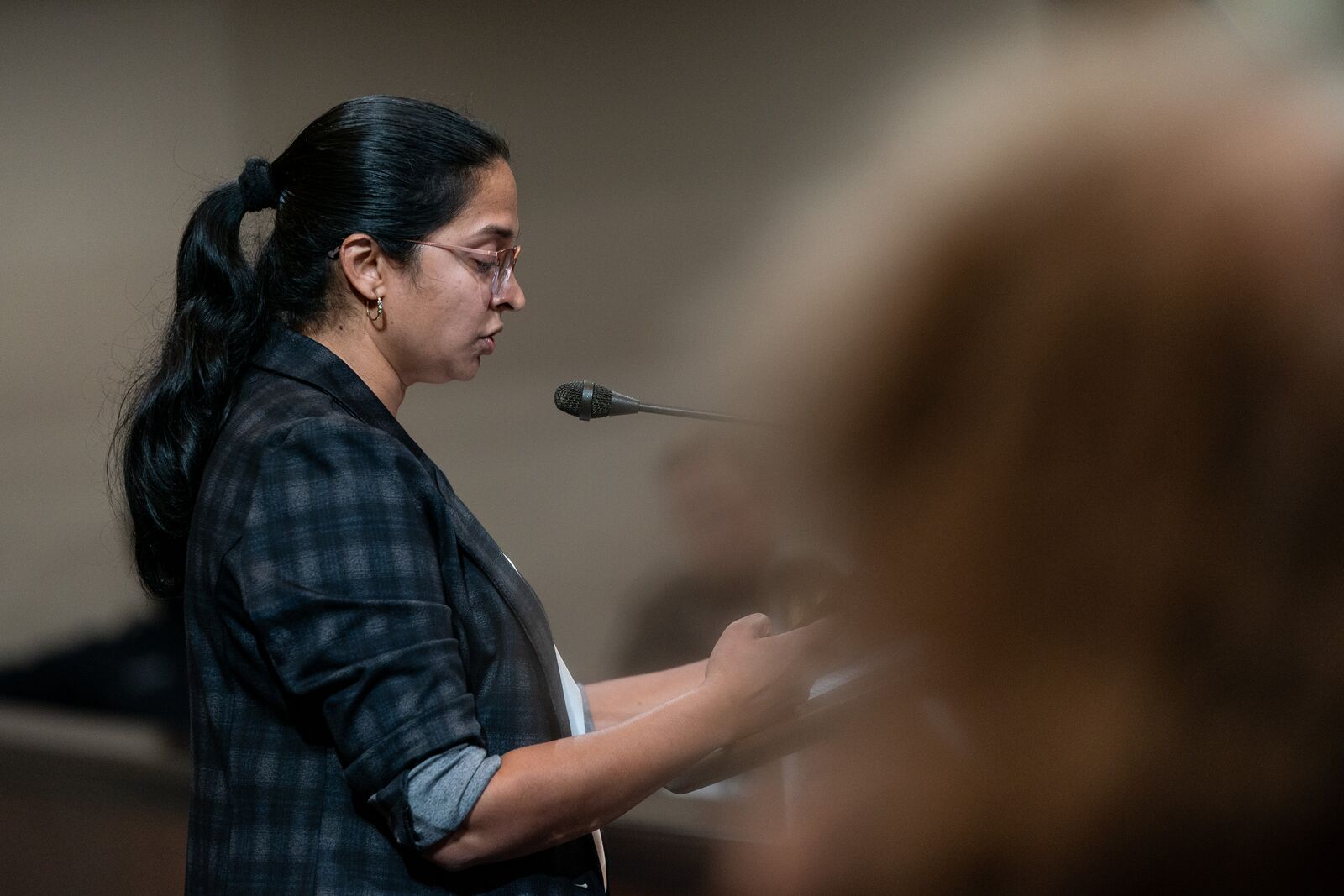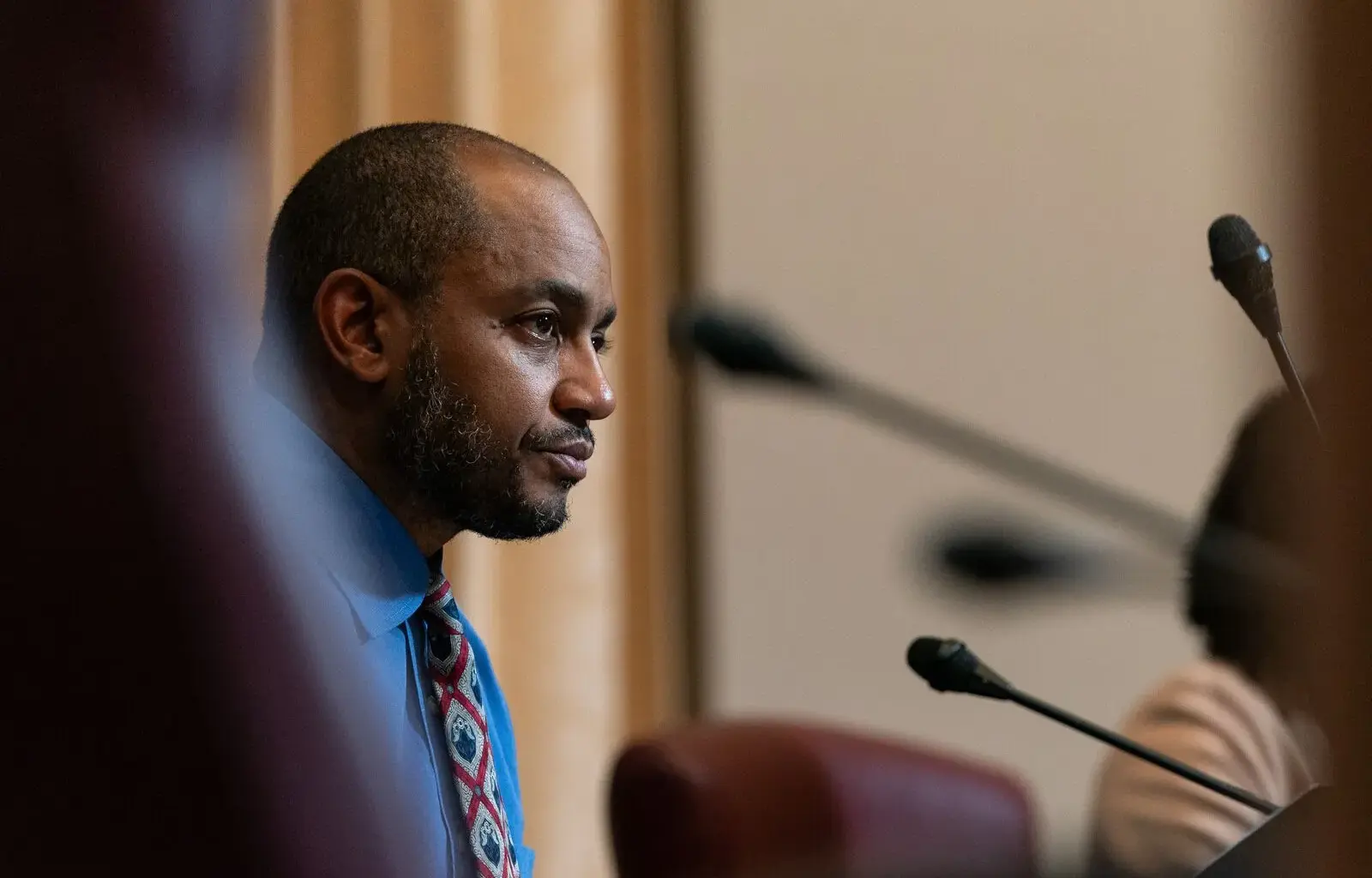The debate over public safety and policing in Oakland has become more polarized in recent years.
On one side, some residents say it’s still necessary to focus on reforming the Oakland Police Department, whose scandals have subjected it to the longest federal court oversight program of any U.S. law enforcement agency. And they want to continue building one of the most robust civilian oversight boards in the country, the Oakland Police Commission, which 83% of Oakland voters established through Measure LL in 2016.
An opposing view that has recently gained momentum holds that the Oakland police are suffering from too much civilian oversight, and that the Police Commission is obstructing the city’s broader mission of advancing public safety. These residents believe officers should have more power and fewer rules to follow. Some even want to dismantle Oakland’s civilian oversight board.
This debate boiled over at yesterday’s City Council meeting, where a typically routine pair of appointments to the Police Commission turned into a major fight.
By the end of the meeting, the council unanimously rejected the reappointments of two members of the Police Commission. District 3 Councilmember Carroll Fife was excused from the meeting as she was in Rome for a multinational conference.
The council’s vote leaves the commission without a chair, Ricardo Garcia-Acosta, and an alternate commissioner, Omar Farmer.
 Police Commission Chair Ricardo Garcia-Acosta listens to fellow commissioners during the commission’s Community Policing Ad Hoc Committee special meeting at Oakland City Hall on Sept. 19, 2024. Credit: Jungho Kim for The Oaklandside
Police Commission Chair Ricardo Garcia-Acosta listens to fellow commissioners during the commission’s Community Policing Ad Hoc Committee special meeting at Oakland City Hall on Sept. 19, 2024. Credit: Jungho Kim for The Oaklandside
Garcia-Acosta and Farmer’s reappointments became the target of a campaign by activists who believe the Police Commission hinders OPD from addressing crime.
Both commissioners rejected how their records have been characterized and said they were outraged by the council vote.
“I’m offended by the callous indifference I received after volunteering for the city of Oakland for five years,” Farmer told The Oaklandside after the vote. “During that time, I went above and beyond what was required. At minimum, the City Council should have highlighted the amazing work we’ve done and said thank you.”
“The City Council’s recent actions, driven by ignorance and ill intent, undermine the very progress we’ve made in police oversight,” said Garcia-Acosta. “By dismissing the dedicated efforts of public servants and disrupting civilian oversight, they risk setting our city back and jeopardizing our future within the NSA.”
The council’s decision comes two weeks after OPD Chief Floyd Mitchell announced his resignation, which some speculated was due, in part, to Mitchell’s frustrations about having to work with the civilian-led oversight board.
Why did the council members vote against the reappointments?
 Farmer defends his character and his work on the Police Commission during the Oakland City Council meeting on Tuesday, Oct. 21, 2025. Credit: Roselyn Romero/The Oaklandside
Farmer defends his character and his work on the Police Commission during the Oakland City Council meeting on Tuesday, Oct. 21, 2025. Credit: Roselyn Romero/The Oaklandside
The Oaklandside asked each council member about their vote. Some said they have concerns about how the police commissioners were selected. Others took issue with the commissioners themselves.
“I appreciate the work of Garcia and Farmer, but we need to improve the process for recruitment and selection,” District 5 Councilmember Noel Gallo wrote in an email.
The Police Commission consists of seven commissioners and two alternates, all of them unpaid volunteers. Three commissioners and one alternate are picked by the mayor, pending confirmation by the City Council. The other four commissioners and two alternates are chosen by a selection panel comprised of Oakland residents. The mayor and each council member get to appoint one member of the selection panel.
The Police Commission has struggled in recent years to attract new commissioners. This year, the selection panel received just seven applications, whereas in previous years, it received over 100. The panel voted unanimously to recommend the reappointments of Garcia-Acosta and Farmer.
At-large Councilmember Rowena Brown sent The Oaklandside the same statement she shared on Instagram explaining her vote, which read, in part, “My decision isn’t about any individual nominee; it’s about ensuring the process meets the highest standards of fairness and public confidence.” She did not explain what about the process was unfair or didn’t meet the city’s standards.
Addressing the council during the meeting, Rickisha Herron, chair of the selection panel, defended her group’s recruitment process, arguing that the council did not provide a legitimate reason for rejecting Garcia-Acosta and Farmer’s nominations.
“To question the selection panel’s appointments without basis is to disrespect the work of the members on the selection panel,” she said.
District 7 Councilmember Ken Houston wrote in an Instagram post on Wednesday morning, accusing Garcia-Acosta and Farmer of “Subtle passive aggressive disrespect to our elected officials, CouncilMembers & Staff.”
He wrote: “Now I personally see what the Oakland Police Department had to endure for all these years! The Disrespectful behavior and the total sense of false power by volunteers acting like they are elected or employees of the City of Oakland was shown to us yesterday !”
Houston told The Oaklandside that he received a call after the council meeting from Sgt. Huy Nguyen, president of the Oakland police union. Houston said Nguyen told him that the commission needs better, more experienced people who will still hold police accountable.
Nguyen declined to talk to The Oaklandside or confirm whether he spoke to Houston.
Council President Kevin Jenkins declined to provide a reason. Councilmembers Janani Ramachandran, Charlene Wang, and Zac Unger did not respond to our questions.
Speaking from Italy on Instagram Live Wednesday morning, Fife noted that many of the people against the reappointments also rallied around recalling former Alameda County District Attorney Pamela Price in the name of “stopping crime.”
“This lack of an appointment is not going to change the systemic issues that lead to crime in the first place,” Fife said. “Holding people accountable for the work they’re supposed to do to keep our communities safe is not what’s creating crime, and it is not anti-police.”
A local activist’s letter blasting Farmer may have influenced the council’s vote
 District 4 resident Rajni Mandal comments on OPD’s vehicle pursuit policy at an Oakland Police Commission meeting on Sept. 19, 2024. Credit: Jungho Kim for The Oaklandside
District 4 resident Rajni Mandal comments on OPD’s vehicle pursuit policy at an Oakland Police Commission meeting on Sept. 19, 2024. Credit: Jungho Kim for The Oaklandside
Weeks earlier, Garcia-Acosta and Farmer’s future on the commission seemed like a non-issue.
On Sept. 25, the City Council’s Rules and Legislation Committee gathered to set the agenda for upcoming meetings. One of the items was to approve the commissioners’ reappointments.
However, Jenkins, as chair of the committee, unilaterally withdrew the item, with no new date to rehear it.
“There were some concerns that arose around these appointments,” Jenkins said at the meeting. “It’s my expectation that the police (commission) selection committee will hear this again and take up those concerns.”
Jenkins declined to talk to The Oaklandside about what concerns he was hearing.
Garcia-Acosta was first appointed to the Police Commission in November 2023, and Farmer in May 2024, according to the commission’s website. Their terms expired on Oct. 16.
In the past, commissioners who wanted to serve another term have often been allowed to do so, though there have been controversies around reappointments, including two years ago when the selection panel declined to reappoint two commissioners.
Nine days before Jenkins moved to stop the reappointments of Garcia-Acosta and Farmer, Rajni Mandal, a Montclair resident and activist who has spoken critically of the commission at past meetings, sent the council president a letter highly critical of Farmer. In her letter, Mandal urged Jenkins and the rest of the council to vote against any recommended reappointments from the selection panel that included Farmer.
“Commissioner Farmer has repeatedly overstepped his authority as defined in the City Charter, directed staff in activities not defined in the City Charter, and involved himself in matters outside the Commission’s scope as defined in the City Charter,” Mandal claimed in her letter.
She accused Farmer of misusing the commission’s time and resources, interfering in labor negotiations with the Oakland police union, and having a conflict of interest stemming from an ethics complaint he filed last year against OPD, among other allegations. The complaint centered around OPD misusing restricted funds to send officers to a memorial event in Washington D.C. in May 2024.
“A Commissioner with an active complaint against OPD cannot credibly serve as a neutral policy overseer while simultaneously pursuing a personal grievance with the agency,” Mandal argued in her letter.
Mandal’s letter did not mention Garcia-Acosta.
Speaking to The Oaklandside on Tuesday morning, Mandal said her complaints about Farmer were not personal.
“It’s not about character or personality; it’s about him not following the rules that are in place in the city charter,” she said.
Farmer said in an interview that he first read Mandal’s letter the day after Jenkins pulled his and Garcia-Acosta’s reappointments from the Sept. 25 Rules and Legislation Committee meeting.
Farmer described Mandal’s letter as “outrageous” and rife with “unwarranted accusations.”
“I can’t see how they (the City Council) can take that letter seriously when they know my work,” he said. He pointed to his experience volunteering on local government boards, including the city’s Reimagining Public Safety Task Force, BART Transit Security Advisory Committee, Alameda County Veterans Affairs Commission, Oakland’s Public Safety and Services Oversight Commission, and now the Police Commission. “I don’t even feel like I need to defend myself. My body of work speaks for itself.”
Farmer said he feels that the criticisms against him may have stemmed from his work on the Police Commission’s militarized equipment ad hoc committee. Farmer, a Navy veteran, has long advocated for OPD to decommission the BearCat, an armored vehicle that officers used in the 2018 fatal shooting of Joshua Pawlik, a 31-year-old homeless man who was holding a firearm while lying unconscious on the ground.
“We have hours of people from the public complaining about the BearCat and how it triggers their trauma and has created trauma for people in the community,” Farmer said.
The Police Commission’s independent legal counsel attempted to rebut Mandal’s claims about Farmer and the commission in an Oct. 13 letter to Jenkins. The Oaklandside obtained a copy of the letter through a public records request.
Katina Ancar, the commission’s attorney, wrote that Mandal’s claims “misunderstand the Commission’s civilian oversight role, misinterpret the Charter and laws that guide Commission operations, and often misrepresent actions taken during Commission meetings.” Mandal’s allegations that Farmer interfered in labor negotiations with the police union, acted without the commission’s approval, and violated the Brown Act were false, Ancar wrote.
“Permitting deferred appointments and baseless allegations of misconduct to place the City and the Commission on shifting ground is untenable at a time when the Department faces difficulties ranging from identifying a new Police Chief to a threatened federalization of troops within City borders,” Ancar added. “The Commission’s leadership and knowledge base must remain stable if the Department is to exhibit readiness to exit the NSA, let alone to weather these additional pressures.”
In a statement issued on behalf of the Police Commission on Wednesday afternoon, Garcia-Acosta said the selection panel will reconvene in the coming weeks to review the council’s vote and determine next steps. In the meantime, Garcia-Acosta and Farmer are permitted under state law to serve as holdovers until their successors are appointed.
The commission, Garcia-Acosta wrote, will “continue advancing critical work,” including working with the mayor and city administrator to select the interim and permanent police chiefs.
The public weighs in on the reappointments
At Tuesday night’s council meeting, 39 people signed up for public comment. Many of those who opposed the reappointments of Garcia-Acosta and Farmer expressed discontentment with the Police Commission as a whole.
One resident, Mandisa Leachman, said she lost her son to gun violence in Oakland in 2018. She blamed the commission for the police chief’s resignation and urged council members to vote against the reappointments.
“There is a problem not just with oversight and the commission; there’s a problem with this whole process,” Leachman said. “Our children deserve justice.”
“I do not think an appointed volunteer should have this much power without accountability,” said resident Anand Joshi.
Another resident, Margarita Marin Parkin, accused commissioners of objecting to the police department’s requests and furthering their own agenda. “I believe that they have overstepped their commitments,” she said.
On the other side of the debate, police reform advocates insisted that the grievances against Garcia-Acosta and Farmer were misplaced and worried about how the council’s vote would impact the next court hearing for OPD’s federal oversight.
Speaking on Zoom, Rashidah Grinage told council members that the problems with OPD predate the existence of the Police Commission and urged them to reappoint the two commissioners.
“Their (OPD’s) reluctance to reform was the problem, and the commission is part of the solution,” said Grinage, who has been a leader with the Coalition for Police Accountability, an activist group that helped create the Police Commission almost a decade ago.
Derron Jenkins, another member of the coalition, said Garcia-Acosta and Farmer’s willingness to continue serving on the commission “should be celebrated, not obstructed.”
“This delay sends a damaging message that political gamesmanship matters more than a public good, and that volunteers who give their time and talent may be disregarded,” he said. “Oakland cannot afford to lose principled leaders to political infighting.”
“*” indicates required fields

